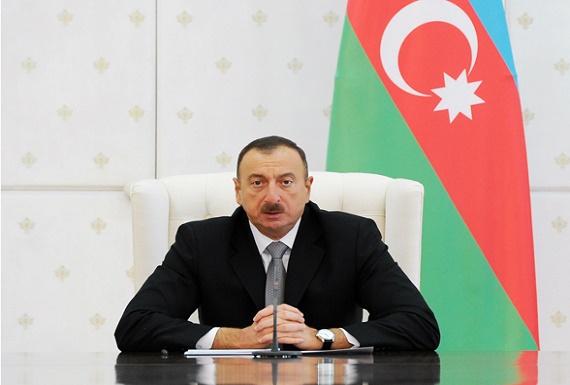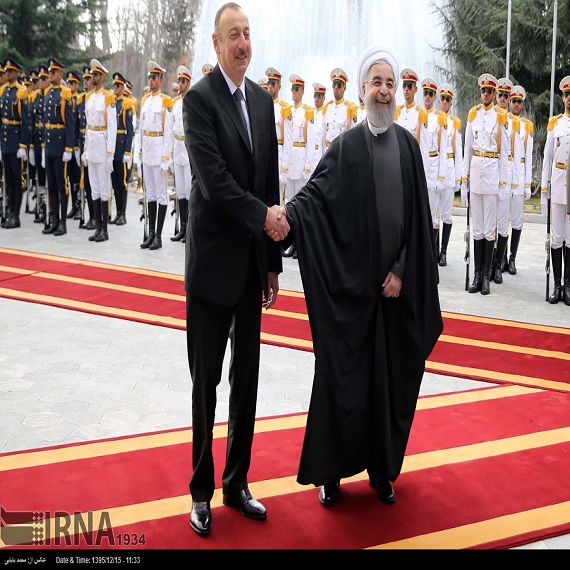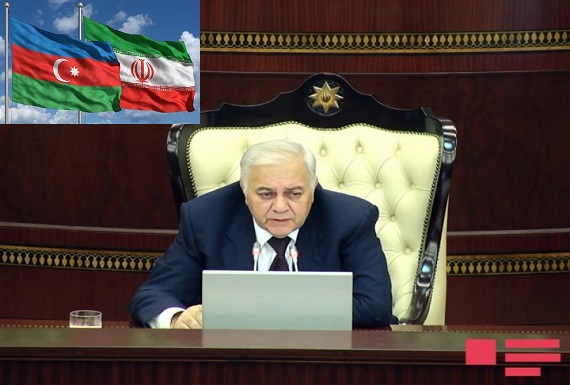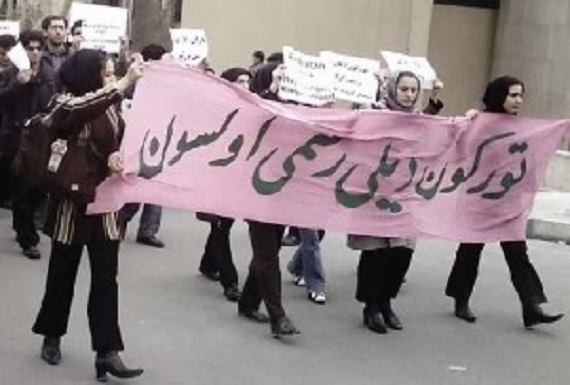President of the Republic of Azerbaijan Ilham Aliyev gave an interview to IRIB

– What is the purpose of Your visit to the Islamic Republic of Iran and what programs you have to expand relations with Iran?
– My official visit to Iran will be paid at the invitation of the President of the Islamic Republic of Iran, Mr. Hassan Rouhani. I want to note that I met with the president of Iran four times in the past. Both during my official visit to the Islamic Republic of Iran in April 2014 and during the official visit of Mr. Rouhani to Azerbaijan in November of the same year, we conducted a sincere debate on all aspects of bilateral relations between our two countries and signed a number of documents contributing to the development of relations in political, economic, humanitarian and other spheres.
Within the framework of this visit, we will also hold discussions related to the events occurring in the region and the world, examine a wide range of bilateral political, economic, social and cultural relations, and sign a number of documents. I am sure that this visit will create a solid foundation to develop and achieve a qualitatively new level of relations between the friendly and the neighboring Iran and Azerbaijan.
– Iran and Azerbaijan cooperate closely in the economic sphere. However, despite the long borders, the fact that we have a lot in common and a good economic potential between the two countries, the trade is not particularly high. What programs do you have to enhance trade?
– After Azerbaijan regained its state independence, the relations between our countries in all areas, including trade and economy, have been on the rise. At the same time, the existing trade is significantly lower than the existing potential. Of course, measures will be taken to overcome this situation in trade relations and further develop bilateral cooperation.
Azerbaijan has further accelerated wide-ranging economic reforms to reduce the impact of negative trends observed in the global economy and maintain the dynamic development trend. At the moment, we are working on large-scale investment programs and privatization, improving the business environment for both local and foreign businessmen. We believe that this will usher new opportunities for Iranian business people in Azerbaijan. At the same time, the joint state commission on cooperation between the Republic of Azerbaijan and the Islamic Republic of Iran in economic, trade and humanitarian spheres is working hard. It has made a number of new proposals that are currently being examined.
In recent years, Azerbaijan and Iran have become very important partners of the North-South transport corridor. Having taken the necessary measures to expand the transit opportunities of our republic, we have reorganized our transport infrastructure in line with the latest standards. We are confident that the commissioning of the railway between the Iranian and Azerbaijani Astara will significantly revitalize the North-South transport corridor. In general, transport and communication corridors are of great economic and geopolitical importance for all participating countries, including us. These corridors, on the one hand, will substantially increase the share of our countries in international freight traffic and, on the other, strengthen our bilateral cooperation in the economic sphere.
– Given the attempts of Takfiri (extremist Sunni groups – as described by Iranian officials) groups to expand terrorism in the region, how would you assess the cooperation between the Islamic Republic of Iran and the Republic of Azerbaijan in the fight against this ominous phenomenon?
– At present, terrorism is one of the most serious problems posing a threat to the system of civilized international relations, regional security and stability of countries. The expanding geography of international terrorism is and should be a major concern for all countries of the world, including our region and every country separately. As a result of wars and local armed incidents in Africa, the former Soviet Union and the Middle East, millions of people were driven away from their homes. National economic systems have actually collapsed. Humanitarian disasters have become a bitter reality of the day.
I should note that Azerbaijan, which regained its state independence in the early 1990s, was subjected to the aggressive policy of neighboring Armenia, the ensuing humanitarian disaster and a wave of Armenian terror. Armenian terrorist organizations have committed over 300 terrorist acts in Azerbaijan, destroyed our cities and villages in Nagorno-Karabakh and adjacent territories. As a result, thousands of our citizens have been killed, wounded and went missing. Occupation, religious and ethnic discrimination, and terror have been part of Armenia’s state policy. Unfortunately, it is still the case today. Therefore, we can identify with the countries and people faced with terror.
Azerbaijan supports tangible initiatives and measures to combat international terrorism. Both within the framework of international organizations and in bilateral relations, we attach great importance to cooperation in the sphere of security, because any country can overcome the difficulties and develop only in the conditions of stability, security and peace. The example of Azerbaijan clearly confirms this. Together with Iran and other states, Azerbaijan is ready to continue making its contribution to fighting international terrorism.
– How would you assess the mediation efforts of the OSCE Minsk Group on the Nagorno-Karabakh conflict? Do you intend to use the opportunities of Islamic countries and countries in the region for the settlement of the conflict?
– In the early 1990s, in the aftermath of Armenian aggression against Azerbaijan, 20 percent of our country’s internationally recognized territory was occupied, our people were subjected to a policy of ethnic cleansing, and more than a million Azerbaijanis became refugees and IDPs. All our economic and social infrastructure on the occupied lands, as well as cultural monuments, including mosques, were destroyed. Armenia has failed to fulfill the decisions and resolutions of leading organizations of the world led by the United Nations, which demand liberation of the occupied lands.
Unfortunately, the world community has yet to apply a tangible mechanism to Armenia to achieve a settlement of the problem within the norms and principles of international law. The activities of the OSCE Minsk Group, which was established to resolve the conflict, remain inconclusive to this day. We can say with confidence that the occupation, which has been ongoing for more than 20 years, is largely due to double standards currently observed in the world.
Facts prove that the international community demonstrates a selective approach to similar events taking place in certain parts of the world. In some cases, the fact of occupation gets not only a harsh response. In fact, major mechanisms of action are put in place and applied in the shortest time to solve a problem. Unfortunately, there is a passive approach to parties of the Armenian-Azerbaijani Nagorno-Karabakh conflict – the occupier and the victim of occupation are treated in the same way. This injustice also stems from a different approach – the religious discrimination of Azerbaijan due to the fact that we are a Muslim state. We can’t comprehend such outright contempt for international law and such a frank attempt to justify aggression.
I would like to note that Muslim countries, including Iran, have always supported the territorial integrity of Azerbaijan in international organizations and in a bilateral format. We express our appreciation to the Islamic Republic of Iran for that and regard this as a manifestation of fraternal and friendly relations between our countries, as well as Iran’s attitude to international law.
The numerous decisions and resolutions of the Organization of Islamic Cooperation have condemned the aggressive policy of Armenia and stated a demand to end the occupation. We support and appreciate all the efforts, as well as the proposals and initiatives of Muslim countries and the countries of the region, aimed at a fair settlement of the Armenian-Azerbaijani Nagorno-Karabakh conflict within the norms and principles of international law. We believe that we will see even greater support for the fair resolution of the conflict.
– There are rumors that Muslims, especially Shiites, are faced with restrictions in the exercise of their religious activities in the Republic of Azerbaijan. What can you say about this?
– As you noted, such information can only be a rumor. Azerbaijan has historically never experienced discrimination on religious and ethnic grounds. Representatives of different nationalities, religions and religious movements have always lived in peace, tranquility and mutual understanding. The Constitution and existing laws of the country fully guarantee the freedom of conscience and religion, and do not hinder believers in their everyday activities.
During the Soviet period, there were only 17 mosques in Azerbaijan. In the years of independence, the number of religious temples and mosques has significantly increased. Currently, there are more than 2,000 mosques in Baku and other cities. The biggest mosque of the country, the Heydar Mosque, was built by my order with public funds and was handed over to the believers.
Azerbaijan shows great attention and allocates funds for the promotion of Islamic culture all over the world. As an example, we can cite campaigns and exhibitions our country has held in Europe and other regions of the world. Azerbaijan adheres to the most civilized norms of ethnic and religious coexistence. There is a tolerant environment. The relations between the state and religious relation in the country are perceived as exemplary around the world. The Organization of Islamic Cooperation has always appreciated the status of Islamic religion, inter-religious and inter-confessional relations in Azerbaijan.
At a time when several countries are faced with contradictions between Sunnis and Shiites, Shiites and Sunnis prayed together at Heydar Mosque in Baku in January this year.
In the current period of growing Islamophobia in the world, we have contributed to the strengthening of solidarity and unity among Muslim countries. Mutual understanding, confidence building, the rule of common interests, the joint fight against Islamophobia and other negative trends should serve as a foundation of Islamic solidarity. Azerbaijan intends to continue to pursue its efforts in this area.
By-Trend


























